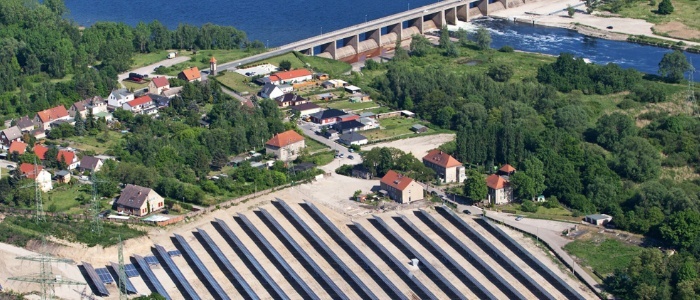The 27th World Climate Conference has begun in the Egyptian seaside resort of Sharm El Sheikh. It is already clear that the international community will miss its climate targets. The EU will probably tighten its own targets again. "Ambitious plans alone will not solve the problem, however", explains Markus W. Voigt, CEO of the aream Group.
At the United Nations Climate Change Conference, delegates from more than 190 countries are discussing the further implementation of the 2015 Paris Climate Agreement, but limiting global warming to 1.5 degrees Celsius compared to the pre-industrial era is no longer achievable. According to the UN Environment Programme's Emission Gap Report 2022, the world is heading for a temperature rise of over 2.5 degrees.
Pressure is therefore growing in the EU to set stricter climate targets. So far, the Union wants to reduce its emissions by 55 percent by 2030 compared to 1990. Some measures have been tightened up in the meantime, but have not yet been adopted - as has the multi-billion "Repower" programme, with which the EU wants to drive forward the expansion of renewable energies and reduce dependence on Russian energy supplies.
The good weather in October already helped to reduce German gas consumption by generating higher yields in solar energy production: In the aream portfolio, the target value was exceeded by 16 percent in Germany. Yields in Spain (target achievement 95 percent) and Italy (91 percent) were slightly below average. In contrast, the wind blew a little stronger again in Germany in October, but still remained below average. The target achievement was 90 percent. "Viewed over the year, however, we are still on track with 95 per cent", says Voigt.
In the end, the EU could probably raise its emissions target to 60 percent reduction by 2030. By then, the share of electricity from renewable sources should rise to 80 per cent - from the current 40 to 50 per cent. "What is needed is a significantly accelerated expansion," says Voigt. "However, stricter targets are not enough to achieve this." A study by the Ruhr University in Bochum, for example, shows that municipal building regulations still inhibit the expansion of solar energy. "Only the targeted reduction of bureaucratic obstacles will bring the expansion target for renewables within reach!"
PRESSEKONTAKT:
Leandra Kiebach
T: +49 (0)211 30 20 60 4-2
E: lk@aream.de


